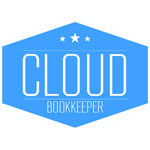The chancellor has presented his budget to parliament, we’ve outlined some of the highlights below.
Lifetime ISA: a new £4,000 ISA that you can use to save for retirement or to buy your first home
From April 2017, any adult under 40 will be able to open a new Lifetime ISA. Up to £4,000 can be saved each year and savers will receive a 25% bonus from the government on this money.
Money put into this account can be saved until you are over 60 and used as retirement income, or you can withdraw it to help buy your first home.
The total amount you can save each year into all ISAs will also be increased from £15,240 to £20,000 from April 2017.
Personal Allowance will increase to £11,500, and the higher rate threshold will rise to £45,000 in April 2017
The Personal Allowance is the amount of income you can earn before you start paying Income Tax. This is currently £10,600 – it will already rise to £11,000 in 2016, and will now increase further to £11,500 in April 2017.
The point at which you pay the higher rate of Income Tax will increase from £42,385 to £43,000 in 2016 and to £45,000 in April 2017
tax allowances for money earned from the sharing economy
From April 2017, there will be two new tax-free £1,000 allowances – one for selling goods or providing services, and one income from property you own.
People who make up to £1,000 from occasional jobs – such as sharing power tools, providing a lift share or selling goods they have made – will no longer need to pay tax on that income.
In the same way, the first £1,000 of income from property – such as renting a driveway or loft storage – will be tax free.
Making sure large companies can’t artificially shift profits out of the UK
Some large companies use excessive interest payments to reduce the tax they pay on their profits in the UK. Relief on interest payments will now be capped at 30% of UK earnings, with exceptions for groups with legitimately high interest payments.
Over the next 5 years, the government will raise nearly £8 billion from large companies and multinationals through changes to the rules on interest and other measures, including:
- introducing rules to prevent multinational companies avoid paying tax in any of the countries they do business in, a technique called hybrid mismatches
- taxing outbound royalty payments better – these are fees for using intellectual property like patents and copyrights – meaning multinationals pay more tax in the UK
- making sure offshore property developers are taxed on their UK profits
Tax support worth £1 billion for the oil and gas industry
This includes effectively abolishing Petroleum Revenue Tax (a tax on profits from oil fields approved before 1993) and dramatically reducing the supplementary charge on oil and gas extraction.
Cutting business rates for all rate payers
From April 2017, small businesses that occupy property with a rateable value of £12,000 or less will pay no business rates.
Currently, this 100% relief is available if you’re a business that occupies a property (e.g. a shop or office) with a value of £6,000 or less.
There will be a tapered rate of relief on properties worth up to £15,000. This means that 600,000 businesses will pay no rates.
Capital Gains Tax rates will be cut from 6 April 2016, but residential property will still be taxed at current rates
Capital Gains Tax is a tax on the gain you make when you sell something (an ‘asset’) that has gone up in value. It is paid at a basic or higher rate depending on the rate of Income Tax you pay.
From April 2016, the higher rate of Capital Gains Tax will be cut from 28% to 20% and the basic rate from 18% to 10%.
There will be an additional 8 percentage point surcharge to be paid on residential property and carried interest (the share of profits or gains that is paid to asset managers).
Capital Gains Tax on residential property does not apply to your main home, only to additional properties (for example a flat that you let out).
Employers will pay National Insurance on pay-offs above £30,000 from April 2018
From April 2018 employers will now need to pay National Insurance contributions on pay-offs (for example, termination payments) above £30,000 where Income Tax is also due.
For people who lose their job, payments up to £30,000 will remain tax-free and they will not need to pay National Insurance on any of the payment.
Corporation Tax will be cut again to 17% in 2020
The main rate of Corporation Tax has already been cut from 28% in 2010 to 20%, the lowest in the G20. It will now be cut again to 17% in 2020, benefitting over 1 million businesses.
Class 2 National Insurance contributions (NICs) for self-employed people will be scrapped from April 2018
Currently, self-employed people have to pay Class 2 NICs at £2.80 per week if they make a profit of £5,965 or over per year. They also pay Class 4 NICs if their profits are over £8,060 per year.
From April 2018, they will only need to pay one type of National Insurance on their profits, Class 4 NICs.
Paying Class 2 NICs currently enables self-employed people to build entitlement to the State Pension and other contributory benefits.
After April 2018, Class 4 NICs will also be reformed so self-employed people can continue to build benefit entitlement.


